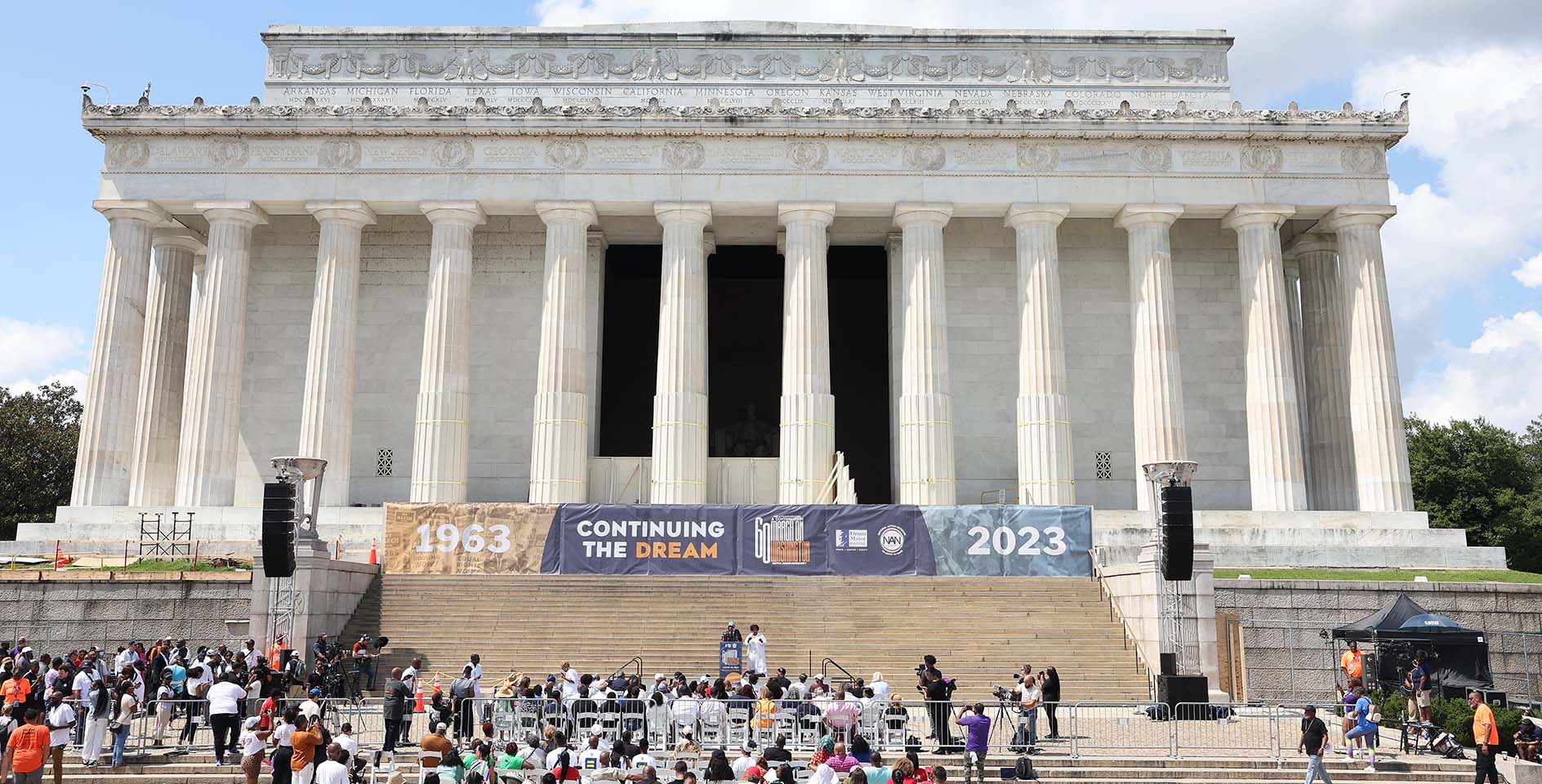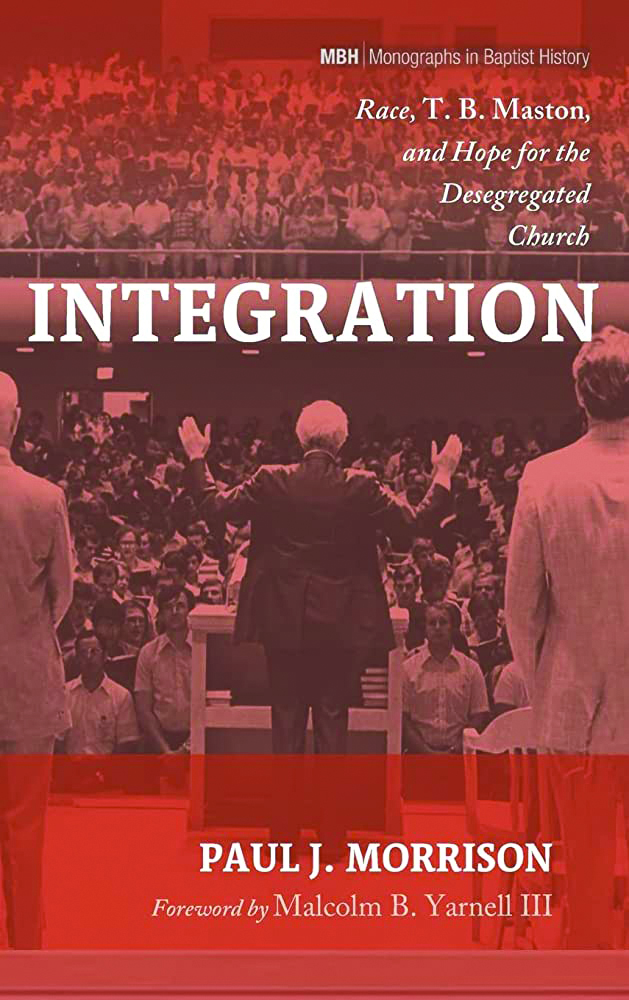The institution of slavery has been called America’s “national birth defect.” “Black Americans were,” in the words of one professor of political science, “a founding population [of the American colonies]. Africans and Europeans came here and founded this country together, Europeans by choice and Africans in chains.”
These events happened far more recently than many Americans seem willing to acknowledge. Last year, 99-year-old Ruth Bonner was present at the opening of the National Museum of African American History and Culture; her father was born a slave. It shouldn’t surprise us, then, that the shadows of this exploitation and dehumanization still shape the lives of Americans today.
But why was this enslavement of Africans morally wrong in the first place?
Many 19th century Christians defended the institution of slavery on the basis of the apparent acceptance of slavery in the Old and New Testaments. And it’s true that some forms of slavery do seem to have been accepted in the New Testament—though freedom was presented as the ideal even then (1 Cor. 7:21-24). Yet, if the scriptures seem to have accepted some forms of slavery, why should Christians today view the enslavement of African Americans as a depraved and dehumanizing system from its inception? More important, how can a renewed recognition of the sinfulness of this system help us to understand better the struggles that we face still today?
1. Scripture and the stealing of human beings
The systematic enslavement of African Americans would have been impossible without the theft of human beings for profit—an act that is explicitly identified in the New Testament as a vile and perverse evil. In one of his letters to a young pastor in Ephesus, the apostle Paul positioned this offense alongside murder, fornication, perjury and the practice of homosexuality. “The law is not laid down for the just,” Paul wrote, “but for the lawless and disobedient, for the ungodly and sinners, for the unholy and profane, for those who strike their fathers and mothers, for murderers, the sexually immoral, men who practice homosexuality, enslavers, liars, perjurers, and whatever else is contrary to sound teaching” (1 Tim. 1:8-10).
The term translated enslavers in Paul’s letter to Timothy can hardly imply anything other than the taking of persons for the purpose of selling them into slavery. The verb form of this word appears in the Historiai of Herodotus with precisely this meaning (ἠνδραπόδισαν…ἐόντας ὁμαίμους, 1:151:2). In Thucydides’ account of the Peloponnesian War, the term even encompassed the trade of persons who had been conquered in a time of war (Ἠιόνα τὴν ἐπὶ Στρυμόνι Μήδων ἐχόντων πολιορκίᾳ εἷλον καὶ ἠνδραπόδισαν, 1:98:1).
The enslavement of Africans clearly fell within Paul’s prohibition of Christian participation in “enslaving” or “manstealing.” As Thomas Kidd has pointed out,
When the slave trade became a truly massive undertaking in the 1700s, many Africans were stolen into slavery. … The United States closed its transatlantic commerce in slaves in 1808, shifting the focus to the domestic sale and transfer of slaves. Outright kidnapping was less common in this system, but every slave owner was associated with a system that, at a moment’s notice, could rip a slave away from husband or wife, parent or child, community and church. Countless churches in the antebellum period had to discuss what to do with a slave who had been sold away from a spouse back east, and now wished to remarry. … Historians estimate that perhaps one in three young slave children were separated from a parent, and one in three eastern slave marriages were broken up by the sale of a spouse to an owner further west in America, in places from Georgia to Texas.
Even after the transatlantic commerce in slaves ended, African Americans continued to be stolen—removed by force from their families—for the sake of profit for their masters. The result was an ever-repeating series of shattered families as long as the system of slavery remained in place.
2. Scripture and the racist foundations of American slavery
The American system was, furthermore, racially-based slavery. Britons and Americans perceived Africans as enslavable precisely because they were dark and not white, African and not European in their origins. The Great Awakening evangelist George Whitefield was instrumental in introducing slavery in the state of Georgia. In a letter dated March 22, 1751, Whitefield revealed his rationale for the enslavement of African Americans in Georgia:
As for the lawfulness of keeping slaves, I have no doubt. . . . It is plain to a demonstration, that hot countries cannot be cultivated without Negroes. What a flourishing country might Georgia have been, had the use of them been permitted years ago? How many white people have been destroyed for want of them, and how many thousands of pounds spent to no purpose at all?
These words from Whitefield reek of racial prejudice, and they reveal the deep racism embedded throughout the American system of slavery. Such racism cannot, however, be reasonably or consistently sustained by worshippers of a God who “made from one man every nation of humanity” and who now “shows no partiality” toward any ethnicity (Acts 10:34-35; 17:26).
At the time when George Whitefield argued for the expansion of slavery, newly-obtained African slaves endured the Middle Passage, a voyage from Africa to the West Indies wherein human beings were chained in their own waste for weeks at a time. More than two million Africans died from torture, disease and sheer despair during the Middle Passage. And yet, Whitefield used his privilege and popularity as an evangelist to promote the expansion of this system, to save those whose flesh was lighter from the labor of cultivating the fields of Georgia.
The long shadow of American slavery
More than a century after African American slavery came to an end, shadows of these systems remain. Despite much progress, patterns of privilege and power remain in place that prevent equal access to justice and economic opportunity.
- Right now, there are more young African-American men behind bars, on parole or on probation than were enslaved in the 1850s.
- African Americans are nearly twice as likely as whites to have zero or negative financial net worth—33.9 percent compared to 18.6 percent. According to the most recent census, the average net worth for African American families was $4,900, compared to $97,000 for whites.
- Even after controlling for other factors, African Americans are far more likely than whites to be stopped and searched, handcuffed, subjected to nonlethal force and shot to death by police.
These are the poisonous fruits of centuries-old thefts and continuing prejudices. In recent months, this festering poison has risen to the surface in the shape of so, so many painful hashtags—each one representing the loss of one more life created in God’s image.
So what can each of us do to move in the direction of healing and justice?
A good place for each of us to start would be to locate, listen, learn and leverage.
Locate and cultivate friendships that can challenge you. Do you have friendships with people from other ethnic backgrounds that run so deep that these individuals are able to challenge your prejudicial assumptions or attitudes? If you aren’t certain whether or not you have such a friend, you don’t.
Listen and weep before you speak. What is your first impulse when it appears that an unarmed person of color is killed by law-enforcement officers? If your first impulse is to score political points or to seek justification, stop. Be broken over the loss of a life formed in God’s image and grieve the way that the brokenness in our world has taken a disproportionate toll on communities of color. Listen to your brothers and sisters whose skin is a different color than yours, and consider how this event looks from their vantage point.
Learn the African-American experience. In many educational institutions, a white student can pursue degrees all the way from a bachelor’s to a Ph.D. and never read a single word about African American history or a single work written by a black or brown scholar. A student of color, however, can’t make it through the first semester without studying the story of white civilization. If you aren’t familiar with such events as the Middle Passage, the Stono Rebellion, Nat Turner’s uprising, Jim Crow, the Great Migration and the murder of Emmett Till, do some remedial reading before you do any more talking or tweeting. Start with Why Are All the Black Kids Sitting Together in the Cafeteria? then move on to Divided by Faith, A Stone of Hope, and other books about the black experience in America. Let those works be the seedbed for a more diverse reading list in your future.
Leverage your privilege for the sake of others. If any one of us is in any position of privilege or power, we must not be silent. God gives privilege and power so that these tools can be purposefully deployed to seek justice for the oppressed. “Defend the weak and the fatherless; uphold the cause of the poor and the oppressed. Rescue the weak and the needy” (Ps. 82:3-4). Speak out against injustice, regardless of what it may cost you. Refuse to be silent in the face of racial inequity. Talk to your brothers and sisters of color about how your voice can be used to seek justice in a manner that is shaped and driven by the gospel of Jesus Christ.
This post originally appeared here.










